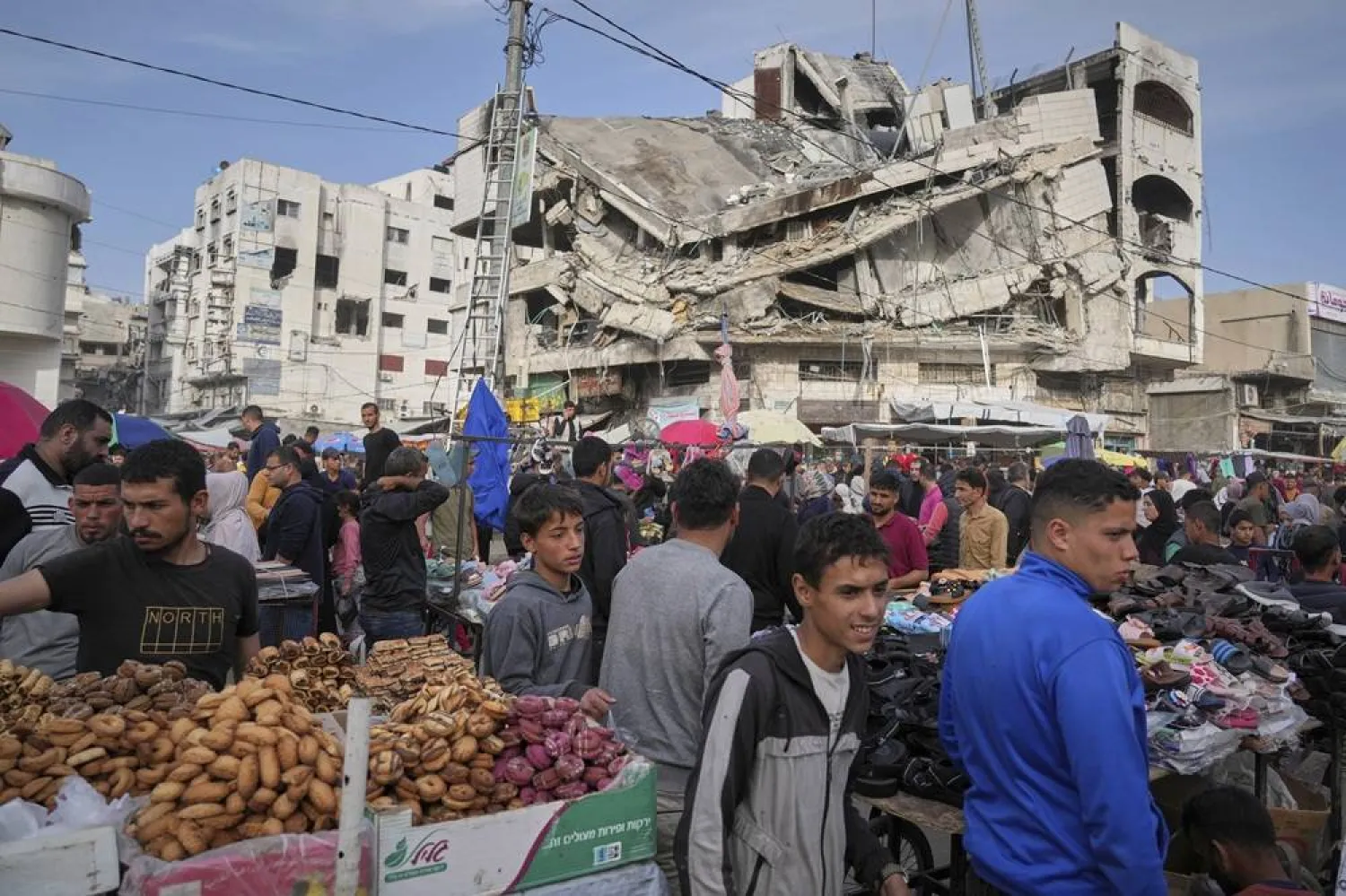As Eid al-Fitr approaches, mediators are intensifying their contacts with Hamas and Israel in an attempt to reach an agreement, even if only temporary, that could pave the way for broader negotiations aimed at securing a permanent ceasefire in Gaza.
Mediators are pushing for a resolution before the first day of Eid, expected on Sunday or Monday, with growing optimism about the possibility of achieving an “Eid truce”—provided that Hamas and Israel respond positively to the current proposal.
According to Israel’s Channel 12, Qatar and the United States are working on a proposal under which Hamas would release Israeli-American soldier Edan Alexander in exchange for a clear and public call from US President Donald Trump for direct ceasefire negotiations.
Israeli Prime Minister Benjamin Netanyahu’s office denied receiving such a proposal, while Hamas has yet to comment.
On Friday, Bassem Naim, a senior Hamas political official, expressed hope that the coming days would bring a significant breakthrough in the conflict.
Mediation efforts had intensified in recent days to establish an agreed-upon framework for resolving the crisis—focusing on a ceasefire, opening border crossings, allowing humanitarian aid, and most importantly, resuming negotiations for a second phase that would lead to a complete halt to the war and Israeli withdrawal, he revealed.
“Hamas is approaching these proposals with full responsibility, flexibility, and a commitment to alleviating the suffering of our people, securing their presence on their land, and reopening the path to reclaiming their rights,” Naim stated.
Senior Hamas sources familiar with the negotiations said the movement is working with mediators, including the United States, to develop a mutually agreed proposal that ensures Israeli compliance.
According to these sources, Hamas has conveyed to mediators that it has no issue with the number of hostages to be released—whether five or more—or the number of Palestinian prisoners to be freed in exchange.
The core issue, they argued, was that previous offers only proposed releasing hostages in return for a limited ceasefire of no more than 40 days, alongside minor humanitarian aid—without any guarantee of advancing to the next phase of talks or securing a permanent halt to the war.
Hamas, therefore, insisted on clear guarantees for a ceasefire before discussing further details, including extending the first phase of the agreement to allow the entry of heavy equipment, tents, caravans, and construction materials for rebuilding critical infrastructure such as schools and hospitals.
The sources stressed that Hamas has shown maximum flexibility to reach an agreement, but the Israeli position remains the main obstacle.
Hamas leaders have reiterated to mediators that they are not clinging to power and are open to any arrangement that helps rebuild Palestinian national unity.
Sources told Asharq Al-Awsat that Hamas recently did not oppose having a minister from Mohammad Mustafa’s Palestinian government head a proposed Community Support Committee to manage Gaza’s civil affairs.
Under this arrangement, the minister would have a deputy from Gaza, selected through consensus among all Palestinian factions, including Fatah.









